




Are you an Early Years Professional with regular interaction with families and young children?

Let’s Count is a free professional development opportunity that provides Early Years Professionals with the pedagogical learning around supporting parents, carers and children ages 3-5 to integrate numeracy into play and everyday activities.



Notice, explore and talk about maths in the everyday!
• Evidence based
• Aligns with the EYLF
•Meets NQS requirements
•Log as part of your PD hours
Let’s Count is practical, tangible and fun!
To register for this free professional development opportunity, please scan this QR Code or visit letscount.thesmithfamily.com.au quoting ACAQ on your registration

Complete module one Let’s Count Online by the end of June 2023 and we will send you a Let’s Count activity bag! This gift pack is worth $25 and is packed with practical games and tools to help bring maths to life for the children in your care.

ACA Qld Location:
2/10 Welch Street, Underwood Qld 4119
Mailing: PO Box 137, Springwood QLD 4127
Telephone: (07)3808 2366
Toll Free:
1300 365 325 (outside Brisbane)
Web: www.qld.childcarealliance.org.au
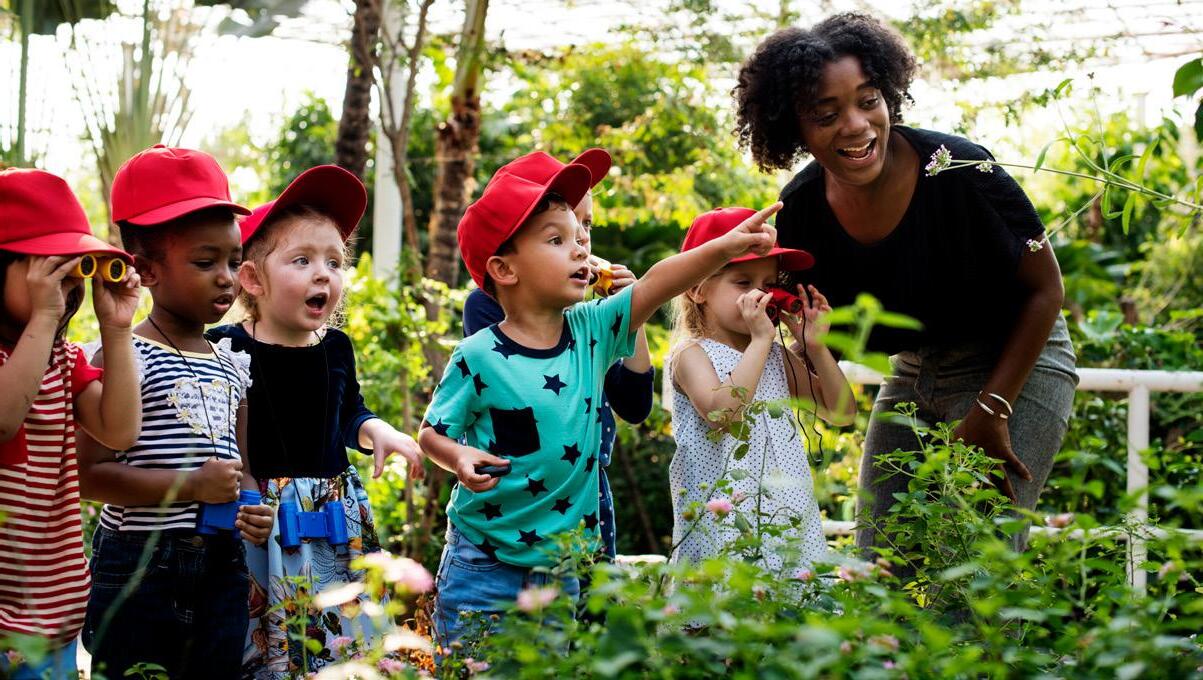
Email: qld@childcarealliance.org.au
Disclaimer: Articles published in this magazine are published as a service to readers and should not be substituted for specific advice in relation to any issue. While advertising in this magazine is encouraged, ACA Qld accepts no responsibility for the contents of the advertisements. Advertisements are accepted in good faith and liability for advertising content, goods or services supplied is the responsibility of the advertiser.
MANAGEMENT COMMITTEE
Executive
President - Majella Fitzsimmons
Vice President - Jae Fraser
Treasurer - Louise Thomas
Executive Secretary - Debra North
2023 has started where 2022 finished off for the ACA Qld Committee and team, working hard in advocating with Government, key stakeholders and connecting with members to provide a high-quality service. With the introduction of the Cheaper Child Care Bill; the Secure Jobs, Better Pay Bill; the ACCC Price Inquiry and the ongoing workforce shortages, ACA Qld will continue to work hard to assist members to navigate the challenges ahead.
In January the Committee held a two-day strategy and planning meeting to review the achievements of 2022 and to look forward and plan what needs to be achieved in 2023. The Committee is eager to continue their good work in advocating to Government and other key stakeholders to ensure we find solutions to the continuing problems around workforce shortages and other issues affecting our member services.
ACA Qld Vice President Jae Fraser, CEO Paul Graham and I will have another busy year working with the ACA National Working Group to support the advocacy efforts at a national level. With COVID now less extreme, the National Working Group are planning more regular face to face meetings this year to ensure effective dialogue and structured advocacy efforts are achieved.
ACA Qld is working with the Queensland Department of Education to provide support to Approved Providers of individual and small groups of services with the implementation of the Kindy for All 2023 program. ACA Qld Committee member Brent Stokes, Jae Fraser, and I have been supporting Approved Providers to understand the new funding by holding face to face information sessions, webinars, meetings, telephone and email support. This has been a great opportunity to connect with Approved Providers across the sector and to provide the support that ACA Qld strive to provide to the sector. Paul has been connecting with members through sector briefings and structured training during February which have been positively received by members. We are looking forward to rolling out further training opportunities throughout the year. If there are any professional development needs your educators have, please don’t hesitate to jot down your ideas in an email to the office.
ACA Qld’s RTO, CAECE continues to provide high quality accredited training to the teams of our member Approved Providers. The CAECE team expect another very busy year with enrolments continuing to be strong and more members taking advantage of utilising the support CAECE can provide.
Finally, a sense of anticipation is starting to fill the air with our members as the ACA Qld National Conference fast approaches. The theme this year is ‘Early Education… it lasts a lifetime’ and the event is being held at The Star Gold Coast from 16 to 18 June 2023. Registrations are coming in fast! Please don’t miss out on the early bird pricing which ends on 31 March 2023. This year our conference gala dinner theme is ‘Garden Party’ and we can’t wait to see the spectacular costumes on show again.
Majella Fitzsimmons ACA Qld President
As 2023 progresses, a number of Federal Government initiatives are directly impacting our sector and drawing strong media and community interest.
Whilst there is a spotlight on the operation of early learning services, we see this as an opportunity to help inform the government, policy makers and decision makers of the complexities, challenges, and experiences within the early learning sector, that are often misunderstood or misrepresented.
Above all we need to ensure that any changes to government policy do not bring about unexpected consequences such as increased costs to families, or a destabilisation of the sector. In the context of an evergrowing workforce crisis, this is an enormous priority.
The upcoming changes include:
These will take effect via the Family Assistance Legislation Amendment (Cheaper Child Care) Bill 2022. The maximum Child Care Subsidy (CCS) rate will lift to 90% for families earning $80,000 or less. This means CCS rates will increase for around 96% of families earning under $530,000.
We know that more affordable early learning services are likely to increase demand for places, which will put pressure on those services already struggling with adequate staff numbers.
The new provisions under the Fair Work Legislation Amendment (Secure Jobs, Better Pay) Bill 2022 bring in new settings that will challenge our sector.
Key changes include multi-employer bargaining, which will make it easier for unions and other collectives to negotiate pay deals that cover multiple similar businesses.
The Australian Competition and Consumer Commission (ACCC) will examine how costs and prices differ across the sector and how various factors impact fees for families.
The inquiry is now well underway, with the ACCC now engaging with individual providers of all sizes, with roundtable discussions with invited stakeholders expected to take place in May.
The aim of this review as announced by the Labor Party in the lead up to the federal election is to implement a universal 90 per cent subsidy for all families (whether via the existing Child Care Subsidy model or some other mechanism).
The inquiry starts on 1 March 2023 with a final report to be provided to the Government by 30 June 2024.
We will contribute to the consultation process on behalf of our members.
The Australian Government aims to develop and implement a whole-of-government Early Years Strategy to create a new integrated approach to our sector and develop a program of action.
The five major items listed above are the key policy reforms that ACA’s political engagement will focus on this year. There is a lot of work involved and we may call on our members for their important feedback over the coming months, to include your insights and experiences in our government submissions around these items.
We thank you again for your ongoing support and we look forward to advocating on behalf of our members and their families to ensure a sustainable, viable early learning sector.
Paul Mondo ACA President
Early childhood educators have a critical role to play in shaping and guiding children’s attitudes about themselves, their abilities and potential. The education and care they provide is an essential service for families and communities and their positive attitudes and influence within their environments creates a climate where young minds can learn and be challenged to reach their highest potential. Being an early childhood educator is emotionally demanding and requires significant emotional labour which can become both physically and psychologically exhausting.
There is no doubt that stressed out, overwhelmed educators cannot effectively support children with their emotional needs when they, as adults, are struggling to meet their own. They need to put their oxygen masks on first before they can effectively nurture children’s wellbeing.
Wellbeing and self-care are currently hot topics and the amount of information in both mainstream media and social media can seem very overwhelming. This article presents evidence-based strategies that have been proven beneficial at improving early childhood educator’s physical, emotional, and psychological wellbeing.
The first part of building your resilience and wellbeing is to become aware of how you are feeling and functioning. This enables you to acknowledge your needs and respond to them with strategies that work for you. Be You (2021) has a tool called the Mental Health Continuum that can support teachers to reflect and identify how they are feeling and functioning. Once you have taken time to reflect on what is going on for you personally, you can then select strategies that enable you to take care of your physical, emotional, and psychological wellbeing.

Early Childhood Australia (2021) identified the following strategies that early childhood educators used to support their personal and professional wellbeing enabling them to thrive:
• taking time to exercise: many educators reported that regular exercise was essential to their physical, emotional, and psychological wellbeing. Whether it is walking, swimming, yoga, running, find something you enjoy, that fits into your life and start a new habit.
• being in nature: being in nature helped educators feel more connected and grounded which in turn positively impacted their wellbeing. Taking a walk outdoors, listening to the sounds of nature or simply sitting outside and taking the time to enjoy nature are all great ways of improving wellbeing.
• engaging with a non-work hobby: research illustrated the benefits of having a hobby completely unrelated to work – whether that be gardening, photography, drawing – anything that lights you up and brings you joy.
• connecting with family and friends: relationships are the cornerstone of personal wellbeing. Make the time to build and maintain relationships and check in with the people you care about who are important in your life.
• setting effective boundaries: ensure you set appropriate boundaries between work and your personal life e.g. turn off your email and work phone outside of work hours.
• developing mindfulness and gratitude routines: engaging with these positive psychology tools increases physical, emotional and psychological wellbeing.
• sleep and rest: prioritise making time for rest and sleep and getting to bed at a reasonable time.
• pausing to reflect on the day: before going to bed reflect on your day and write down three good things that happened, or that you observed.
• celebrating small wins: set small achievable goals and celebrate the wins – this provides an upward spiral of positive emotion that increases emotional and psychological wellbeing.
• engaging in ongoing professional learning: seek out opportunities for growth, learning and building skills.
Wellbeing is a very personal thing, there are no silver bullets, and one strategy does not fit all. Take time to reflect on the strategies you are already using to scaffold your personal and professional wellbeing and decide if you could benefit from adding a few more into the mix. Experiment with the above strategies and determine which are a good fit for you. Start by implementing one, let that become a habit, celebrate the win and then choose another one you would like to implement.
You might believe that there is absolutely no way you can jam anything else into your already busy diary. If this is how you are feeling, it is critical that you take the time to put on your own oxygen mask before you burnout.
The work early childhood educators do is vitally important. You are shaping future generations by providing positive educational environments and experiences that foster children’s social, emotional, physical, and psychological wellbeing in their formative years, which significantly impacts the rest of their lives. To continue to do that you must take care of yourself first so you can keep showing up as the best version of yourself.

Kari Sutton is an educator, speaker and author who has helped over 25,000 children, parents, and educators with evidence-based strategies, tools and approaches to foster children’s resilience and emotional wellbeing and cultivate educator wellbeing. You can find her in any of these places: www.karisutton.com
https://www.instagram.com/karisuttonofficial/
References
Be You (2021). Mental Health Continuum.
https://beyou.edu.au/resources/mental-health-continuum
Early Childhood Australia (2021). Supporting Early Childhood Educator Mental Health and Wellbeing.
https://www.coronavirus.vic.gov.au/mental-health-and-wellbeing
The new training package is in full swing and brings new challenges to students and services.
Key changes in the training package are:
• 17 units in CHC30121 Certificate III in Early Childhood Education and Care
• 160 hours of practical placement is required for Certificate III
• 15 units in CHC50121 Diploma of Early Childhood Education and Care
• 280 hours of practical placement is required for Diploma
• Certificate III is a pre-requisite to the Diploma. This means educators CAN NOT enrol directly
into the Diploma without first completing either CHC30113 Certificate III in Early Childhood Education and Care OR CHC30121 Certificate III in Early Childhood Education and Care
• All practical tasks must be observed in the workplace. This means RTOs must directly observe the student completing the task. Direct observation will vary from RTO to RTO; some may require students to submit video evidence of them directly completing tasks.

The biggest impact these changes are having is on educators with older qualifications; for example, educators with Certificate III in Children’s Services wanting to complete their Diploma will have to “upgrade” their Certificate III to the new CHC30121 Certificate III in Early Childhood Education and Care. The majority of RTOs will offer an RPL pathway for these students. RPL is an assessment-only pathway and provides students with an opportunity to provide evidence of prior learning (for example, their Children’s Services qualification PLUS workplace experience and professional development). It is important to note that RPL is not an easier pathway than the traditional learning pathway and often comes with requirements for a large amount of evidence to be provided.
Not all educators will be eligible for RPL; in some instances, a combination of RPL and traditional learning pathways is the best option. The RTO you engage with should be able to guide you and your educators on the best pathway for them.
Most educators have been a student while working parttime or full-time at some stage in their careers. Balancing work, life and study is a challenge to which there is no one size fits all solution. Understanding the barriers and challenges your educators may face when they embark on their study journey is important. They may feel valued and supported and more inclined to share their journey with you. Some barriers educators may face when studying are:
• Time to study; balancing working full-time or part-time, having family or personal commitments
• Support and guidance; in the workplace to ask questions, complete practical tasks, or implement plans, getting help from a trainer/assessor
• Low language or literacy abilities; some educators struggle with understanding the coursework
We all feel there could be more hours in the day at times, and it takes considerable organisation and commitment to add study into this mix. Being prepared and setting ones self up for success from the beginning of the study journey can make all the difference to the success of the study journey. Some things educators can do to be successful in their study journey:
• Pre-plan their study time; set aside a set day/time each week allocated to study. This ensures that they are prepared for study and develop a habit of study
• Have an area set for study; setting a space with everything needed to study means students are not spending time looking for pens, notebooks, chargers etc
• Know what is expected in the assessment. Plan study time to work on a particular task or page of the assessment
• Set goals; small achievable goals for example: answer 5 questions each day/complete 1 page of assessment per day
• Set and know the due dates and, most importantly, stick to them
• Celebrate success
Some things you can do to be an active part of your educator’s study journey are:
• Have a copy of the educator’s training plan and due dates
• Ask for progress notes from the RTO
• Ask to be notified when the educator is not progressing (Most RTOs should do this)
• Complete any third-party reports or supervisor reports as requested
• Provide the RTO with feedback on their assessment practices
Some things the RTO can do to support you and your educators:
• More frequent visits
• More frequent contact
• Arrange visits at a time that is suitable for you and your team
• Send monthly progression reports
• Request feedback from services on delivery and assessment practices
Educators who have supportive employers progress much better in their studies as they feel supported and encouraged to complete them. After all, it is beneficial for the employer to have quality, qualified educators in their team.

Supporting your team doesn’t mean giving paid study time or time off the floor. Creating a supportive environment can be regular check-ins with your educators on how they are progressing, discussing key learning outcomes with your educators to embed their learning in everyday practice, discussing the topics and key learnings with the trainer and assessor and asking how you can embed the learning in the everyday activities of the service.
The educator, the workplace and the RTO need to be open, transparent, and flexible for the learner to succeed in their journey.
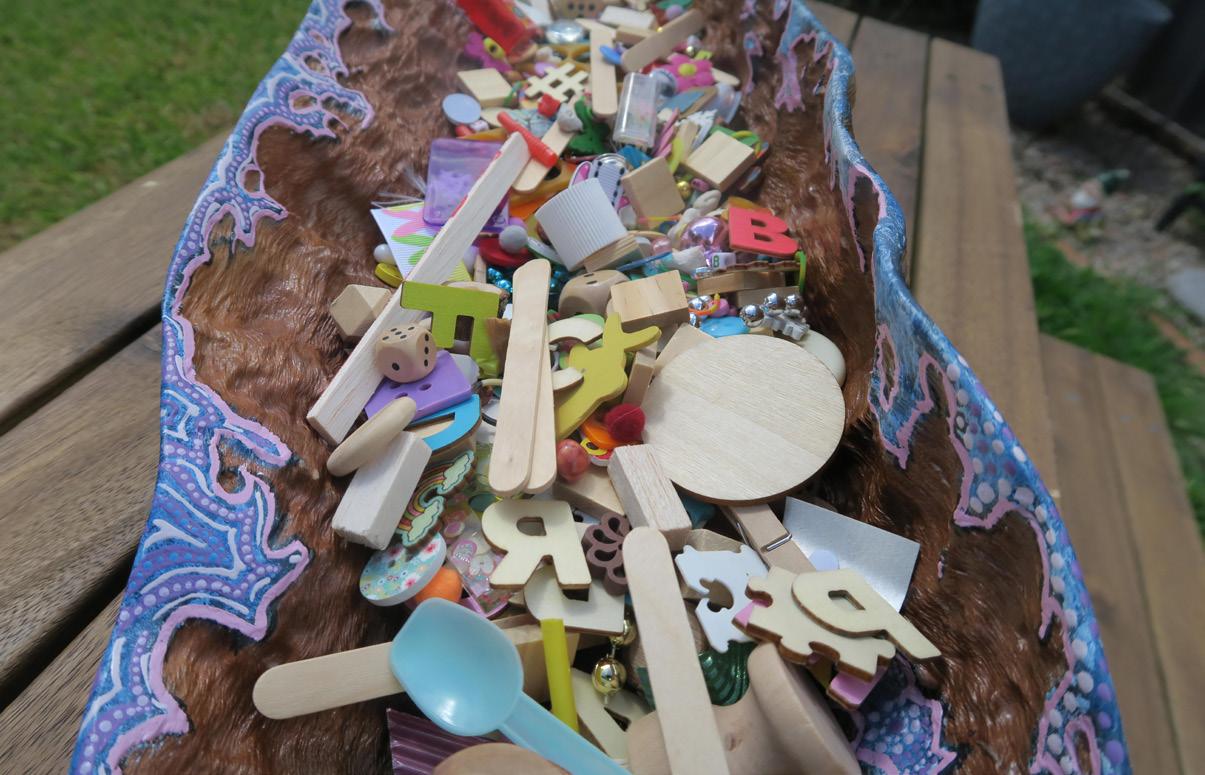
‘School readiness’ can be a daunting phrase. How do you balance the pressure from families to prepare their children for school and academic success, with the best practice guidelines of the NQF around child-focused, play-based learning? The answer is easier than you may think… Loose Parts.
Loose parts are such a great resource and can be used with all ages. Younger children can explore larger loose parts made up of an assortment of everyday items so that they can become familiar with these items and transfer knowledge learnt through play into real world experiences. Older children can have smaller loose parts to challenge fine motor and help get those fingers and hands ready for writing at school, as well as using larger loose parts in outdoor environments to help build core control and muscle tone - important for sitting at desks for longer periods of time.
Not only do loose parts support physical development but they also can be made up of anything you choose to add, so for children who have specific school readiness goals you can add specific loose parts to support them. The
more items you have in your loose parts collection, the more school readiness opportunities there are based on each child’s ideas and play. Two of the biggest pressures for school readiness are literacy and numeracy so I will focus on them and how you can support these through loose parts play.
There are so many ways to add literacy to your loose parts kit to invite and encourage children to learn about letters and symbols. Not every child will feel comfortable holding a pencil and writing on paper as that is permanent and, if they make a mistake, it will be there forever. For those children, playing with letters in loose parts is a gentle way to build confidence without the permanency of writing on paper.
There are a lot of different letter shapes you can add, the more styles, fonts, upper and lower case letters, the more confident children will get at recognising letters as they are not always going to be in the one font in the real world.
Once you add letters you invite letter recognition, spelling, letter sounds discussions, and more. You can start to look at directional use of letters moving from left to right and top to bottom as you use them. You can also provide additional props such as name cards, alphabet books and similar to support children to focus on letters in their play.
You do not need to add letters to start looking at literacy school readiness, you can also add symbols such as logos, Indigenous symbols, braille, letters from other alphabets, numbers, punctuation etc. Letters and symbols follow the same rules because they represent meaning. You can also add items such as bread tags as they introduce text in meaningful ways (not to mention opportunities to explore recycling and sustainability).
There are so many different aspects of numeracy that it is impossible not to include items that support this in your loose parts play. Every item has size, shape, weight, measurements, is bigger or smaller than other items, is heavier or lighter than other items, not to mention the items can be counted.
If you want to add specific numeracy skills into your loose parts kit a great starting point is to get some dice. Not only do they encourage children to count out items in relation with the number on the die, but dice also support recognition of numbers through the dots and with repeated use children became able to recognise a number without counting the dots. You can also get dice with different numbers on them and different number of sides to help support this recognition.
You could also add different shapes, either cut them out yourself from felt or card, or get some cheap buttons of different shapes. You may also like to add the challenge of 3D shapes and start exploring their names if children are showing an interest. Another way to encourage children to focus on size differences is by having similar items in different sizes such as different lengths of ribbon, or different size wooden discs. These encourage children who like to find similar items to recognise their differences and discuss size.
• Loose parts should be about investigation, exploration, and open-ended play, children should not be made to use the items in a specific way, instead invited to do so by the items you offer and the role modelling you provide.


• When you are playing alongside the children with the loose parts you can assess their awareness of shapes, letters, numbers etc. through play by asking them to pass you items for your play.
• Remember to keep play child-focused and interact in meaningful ways, not just quizzing children but instead following their lead and understanding their thinking.
• When sharing the learning with families make the school readiness skills clear - don’t hide them behind learning outcome codes.
• School readiness can happen anywhere, anytime, and is about responsive teaching and scaffolding more than it is about structured experiences. The more fun an experience is, the more children will engage and retain information as it becomes meaningful to them.
The answer is easier than you may think… Loose Parts.
You might know Jae as the founder of Little Scholars School of Early Learning and The Scholars Group, as well as the Vice President of Australian Childcare Alliance Queensland, but you might not know he started his career as a trainee in ECEC and is a qualified teacher and early childhood educator.
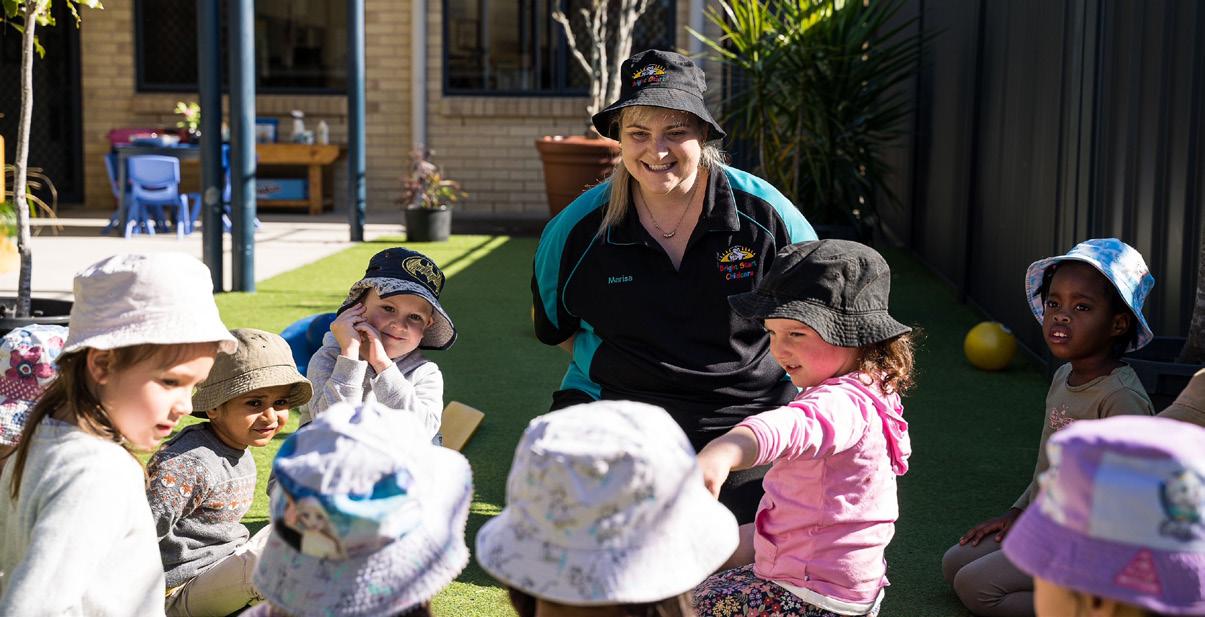
More recently, he’s created The Fraser Foundation, a not-forprofit that financially supports educators across the early learning and professional potential with the assistance of scholarships and bursaries. Those educators can be living anywhere in Australia at any point in their career journey.
For Jae, creating The Fraser Foundation was personal.
“When I began my career, I dreamed of educating young people, but coming from humble beginnings, going to university was a huge stretch. So much so that in order to achieve my dream, I had to go the long way around, working full time while studying to pay for my education –which took more time and was much more difficult,” he says. Now, Jae wants to make it easier for passionate people who want to dedicate their lives to shaping the next generation, by assisting to build a strong and enthusiastic teaching workforce that will ensure successful futures for children.
Research shows children who do not receive any Early Childhood Education and Care (ECEC) are twice as likely to be developmentally vulnerable when starting school than children who received at least some ECEC, according to the 2021 Australian Early Development Census (AEDC).

“That’s why dedicated, enthusiastic and passionate educators and university-trained early childhood
teachers matter. I want to help those people achieve their professional goals, their dreams, which will in turn ensure children have the best start in life,” Jae says.
Jae has personally committed $2 million to supporting education with tailored scholarships and bursaries. These scholarships are open to anyone in Australia, in any state, from metropolitan or rural areas, who is excited and committed to becoming an early childhood teacher.
“Dedicated, enthusiastic and passionate educators and university-trained early childhood teachers matter. I want to help those people achieve their professional goals, their dreams, which will in turn ensure children have the best start in life.”
– Jae Fraser, founder of The Fraser Foundation
“I know what it’s like to want something so much but have to jump a heck of a lot of hurdles to get it,” says Jae Fraser.
“From that single parent who has learned so much about how important those first five years are after having their own children and wants to become the best version of themselves, to someone who is mid-career and wants a big, fulfilling change – I want to help those people achieve their dreams, and anyone, everyone, who is passionate about early childhood education.”
But making those goals reality can be easier said than done. Many people face barriers that make furthering their education difficult. According to the 2021 Youth Survey report by Mission Australia, one in five respondents felt financial difficulty was a huge barrier to achieving study or work goals. Of course, we all know there’s no shortage of roles in the ECEC sector, there’s only a shortage of qualified, dedicated people to fill those roles, and that’s where The Fraser Foundation comes in.
At the end of 2021, The Fraser Foundation officially launched and hit the ground running granting scholarships to dedicated educators to further their professional and personal goals.
Marisa is one of those first Fraser Foundation scholarship recipients. She became an educator 16 years ago, and with the financial support from The Fraser Foundation, is now studying for her Graduate Diploma in Early Childhood Teaching with Swinburne Online, with its completion expected in July 2023 – delivering another qualified early childhood teacher for our sector
Marisa, who works at Bright Start Child Care in Brisbane, says it’s about $24,000 for the 12-month Graduate Diploma, something she’d struggle to pay for, and she’s thrilled to have received the support.

Becoming a qualified early childhood teacher means gaining an expert understanding of educational theory and pedagogical practices. The benefits of becoming an ECT include increased responsibilities, progression opportunities and the possibility of flexible hours. The timing couldn’t be better, as the demand for early childhood teachers is predicted to rise by nearly 10,000 roles in Australia by 2025.
“I will be a qualified ECT, and it will provide me with extensive knowledge within the sector, because it’s somewhere I want to stay. I’ve been in the sector for 16 years. In an educational leader role, I can use that to extend on other educator’s roles, their knowledge and give them guidance.”
Andrea, an educator at Eastwood Early Education in Toowoomba, has been in the sector for more than 10 years. She agrees she wouldn’t have been able to do the Graduate Diploma and become an ECT without The Fraser Foundation.
“There is absolutely no way I would have even been able to contemplate completing a degree like this,” Andrea says. “This assistance is allowing me to complete this course without the major financial impact and fulfil my dream to become a qualified early childhood teacher.”
Applications are now open! Are you or is there someone you know who’d be an incredible early childhood teacher but needs some help to get there?
If you are an Australian citizen or permanent resident enrolled or intend to enrol as a full time or part time student in any approved Australian early childhood education course, and can demonstrate a passion for and commitment to education and early childhood, we encourage you to apply for a scholarship from The Fraser Foundation now: https://www. thefraserfoundation.com.au/ applications

“Myself and the director of the centre I’m working at, we attend ACA conferences so we heard Jae speaking about The Fraser Foundation,” Marisa says.
We know children LOVE to copy us, and as influential figures in their early years, we do our best to ensure this learning technique is used for better. I have always found joy as a musician in watching children find pleasure in listening to live music, including hearing and seeing different instruments.
The softer sounds help create calmer listening, and the drums and shakers encourage movement. Their focus shifts as the energy of the music changes. I recognised that music and rhythm provided an exciting way for children to learn vital listening and copying skills, as well as learning to express themselves.

When my son was born with Autism and Microtia (little ear), with permanent hearing loss in both ears, I wanted to provide for him, and other children with hearing or communication loss an opportunity to be included. I was motivated to incorporate Auslan (Australian sign language) into singing nursery rhymes and songs. Children feel confident in learning a new language in a fun, expressive way, and as Auslan uses a lot of facial expressions this in turn encourages a lot of copying. By using songs involving the alphabet, colours, counting and animals, we cover core themes for early learning and children are met with repetition, causing familiarity.
Acting out, moving, dancing and singing along to familiar tunes encourages children to move, sing and sign all at the same time, engaging both the left and right sides of their brains. This is an exciting way for


them to learn useful signs on top of basic signs such as ‘yes’, ‘no’, ‘more’, ‘finished’, ‘drink’, ‘toilet’, ‘hat’, etc that they can use in their everyday life. Incorporating as many opportunities as possible to learn and use signs can really benefit children in communicating with their educators and peers, especially where communication is non-verbal.
Games and activities will foster children’s thinking abilities when utilising their learned skills. I like to use ‘voices off’ games, which pushes children to use only sign to complete the game. Such games are inclusive of all children and encourages communication, confidence, and group work, including taking turns.
By using available resources, or consulting directly with members of the deaf community, CODAs (Child of Deaf Adult), or those who hold a qualification, you can ensure you are keeping up to date with correct signs and current changes in the deaf community.
My passion led me to creating the Rhyme Rhythm and Sign program in 2020, which has given me, and our team of professional musicians, early childhood educators and music teachers the opportunity to visit early
learning services and provide private NDIS classes to children and their families who are deaf, hard of hearing or have communication delays. We love what we do, and our goal is to get children excited about another language and think about inclusion. You can find us on Facebook: Rhyme Rhythm and Sign Brisbane.
 Emma Lawrence > Managing Director at Kids Alive
Emma Lawrence > Managing Director at Kids Alive
At Kids Alive, we have been partnering with early educators for over two decades to provide resources and programs they can use to teach under-fives about water safety. The Kids Alive – Do the Five water safety program incorporates a range of activities designed to get underfives thinking about water safety all year round and reinforce what they are learning at formal swimming lessons.
Last year 17 children aged 0-4 lost their lives to drowning and for every toddler drowning death, it is estimated that 8 children are admitted to hospital as a result of a nonfatal drowning.
For early educators keen to make water safety messaging a part of their curriculum, the Kids Alive website has a wealth of resources, located in the dedicated Teachers Hub. These include posters that can be downloaded and displayed year-round, animations, songs, music videos, puppet shows, concerts and safety tips. You can also request Kids Alive Water Safety Packs and books via our website that we will send you free of charge.
and 3-5 years. The training showcases actual lesson plans delivered by the teaching staff at Queensland based services. These lesson plans were designed to showcase activity ideas and teaching strategies utilised by the educators. These lessons can be linked to the Early Years Learning Framework and National Quality Standards.
We are constantly looking at innovative ways to spread water safety messages to under-fives and we have some exciting new programs we have developed recently in conjunction with sector experts.
Through our partnership with Messy Bubs, we have created the Kids Alive Water Safety Sensory Sessions, developed to promote water safety while children enjoy the benefits of sensory play. In the Kids Alive Teachers Hub you will find a short training module that includes ‘how to’ video demonstrations along with lesson plans to guide a variety of activities for the Pool, Home, Beach and Farm environments.
Over on our Kids YouTube Channel and also on our website, you can find our Yoga Water Safety Sessions, offering three different levels of yoga classes for children aged 0-2, 2-4 and 4-6 years old. The sessions aim to provide information about water safety to children through yogabased movements and activities.

To assist with the delivery of water safety messages, we have created an online professional development opportunity for Early Childhood Educators. This opportunity includes two training modules for 0-3 years
In conjunction with Ready Set Dance, we have created a Water Safety Show designed to bring important water safety messages to under-fives through a fun and informative short dance show. These shows are being rolled out by Ready Set Dance schools throughout Australia and you can get in contact with us to see if there is a dance school in your area who could bring this show to life in your education setting.
Ultimately, early educators are in a unique position to impart on children water safety information that could ultimately save their lives. We look forward to seeing more early educators take up the training in 2023 and be leaders in this space.
Have you considered taking on a trainee or an apprentice but are not sure how or where to start?
Taking on a trainee or an apprentice has many advantages for the employer and the educator. It can often be the beginning of a long and rewarding relationship between employer and employee. Some of the benefits of taking on a trainee or an apprentice can include:
• Job security for both trainee/apprentice and employer. It is a contract that both parties must commit to and can provide security for the employer that the educator will progress in their studies at a reasonable rate as per the regulatory requirements
• Support and mentoring for the educator during their studies
• Support from the Australian Apprenticeship Support Network (ASSN) at sign-up, during the contract term and
at the completion of the qualification
• Subsidised wages with available government incentives (eligibility criteria apply)
• The trainee/apprentice may be eligible for Apprentices’ support payments (eligibility criteria apply)
• Fee-free training for educators who are under 25 years of age (the day before they turn 25)

Myth: You have to commit to employing the trainee/ apprentice for 2-4 years
Fact: The training contract can be cancelled by the employee, employer or RTO for varied reasons
Myth: You have to give the educator a huge amount of paid time off the floor for study
Fact: At sign-up, you, the employee and the RTO will negotiate study time. Study time is a recommendation not a requirement - however, time to study at work does help educators progress in their studies and provides positive outcomes for their learning

Myth: The employer pays all the fees for the training
Fact: While this is true for apprentices, it is not true for trainees, the employer and the employee will receive incentive payments to support the financial implication of taking on a trainee/apprentice so it is recommended that the employer pay the fees
Myth: Trainees can not be left unsupervised
Fact: A trainee is no different from an unqualified educator, except in the case of a school-based trainee under 18. A school-based trainee under 18 must be supervised
Myth: Trainees do not count towards ratio
Fact: A trainee is no different to an unqualified educator and can be counted towards ratios
What is the difference between a trainee and an apprentice?
A trainee is enrolling in CHC30121 Certificate III in Early Childhood Education and Care, whereas an apprentice is enrolling into the CHC50121 Diploma of Early Childhood Education and Care. Trainees and apprentices are both being paid to study but do come with some differences in the time frames and expectations.
• The trainee must complete a minimum of 15 paid hours per week
• Trainees under 25 years of age are fee-free (the day before they turn 25)
• Who is expected to pay fees and charges to the training provider?
Usually, students are required to pay a co-contribution fee. https://desbt.qld.gov.au/training/training-careers/ incentives/userchoice
The fee may be paid on behalf of the trainee by a third party such as the employer or a parent, but it cannot be paid by your training provider. https://www.qld.gov.au/education/training/subsidies/ userchoice
• The apprentice must complete a minimum of 15 paid hours per week
• Apprentices under 25 years of age are fee-free (the day before they turn 25)
• For information on incentives, payments, benefits and requirements, go to https://www. australianapprenticeships.gov.au/
• The employer contacts their preferred Australian Apprenticeship Support Network (ASSN) provider to book in the initial sign-up between the trainee/apprentice, employer, and apprenticeship centre.
• Australian Apprenticeship Support Network (ASSN) contact details:
• Busy at work – 13 28 79 https://www.busyatwork. com.au/
• MAS National – 1300 627 628 https://masnational.com. au/
• MEGT Australia – 13 63 48 https://www.megt.com.au/
• Sarina Russo Apprenticeships – 13 15 59 https://www.sarinarusso.com/apprenticeships/
• Apprenticeship Support Australia (ASA) – 1300 363 831 https://www.apprenticeshipsupport.com.au/Home
• The ASSN will go through the contract and will explain the expectations of the educator and employer. They will explain any student co-contribution fees that may need to be paid and discuss any incentive payments to which the educator and employer may be entitled.
• The ASSN will ask if you have a preferred Training Provider (registered training organisation)
• The preferred RTO will receive a contract from the ASSN to accept
• The preferred RTO will contact the trainee/apprentice and employer to advise a contract has been received and accepted and will start the enrolment process It can take, on average, 6 weeks for the training contract to become active and for the educator to start their study journey.

When educators have a strong sense of wellbeing, they are better equipped to be responsive to every child and their needs, and work together as a team. You can support your team by emphasising how important it is for them to think about self-care and their wellbeing. We need to think about what everyone brings to the team and channel these thoughts as a starting point for creating change.
Incorporating some time into your day to visualise yourself in a setting that brings you happiness can help give you a boost to make your day brighter. Your future depends on what you choose to think here and now.
A basic visualisation routine might look like:
Mindset is a strong contender to workplace wellbeing. How can we use the language of the mind to consistently achieve specific and desired outcomes?
Our thoughts become things. When we have negative thoughts, try to change the channel in your mind as you would change the channel on the television. Think of something empowering, loving and positive. You are in charge. Spark your own change of mindset and watch how it can impact your day.
For example, if you were thinking about how the rainy weather was going to affect your day with the children, think less about the mud and mess, or being cooped up inside. Instead, appreciate the days you enjoyed the sunshine, the beach, being outside and present in nature, and channel that happiness into your day. Your positivity will set the mood in the room. It may be raining outside, but you have the power to bring sunshine into the room.
Visualisation is an impactful strategy when practicing mindfulness. You may benefit from taking the time to exercise your imagination and taking the time to visualise yourself in a setting that brings you calm.

• Picking a time to sit down somewhere you won’t be disrupted for 2-10 minutes
• Imagining a scene and picking out every possible detail; the sight, smell, sounds and colours
• Reaching for the emotion you want to feel
• Putting yourself in the picture
• Visualising the end result
When we are faced with challenges, it is important to consider what we are feeling, what is underneath the emotion and how to look at this differently. If an educator is coming to you with a problem, sit down with them and unpack their problem. Uncover all aspects of the challenge at hand and discover the “real” objection before moving forward. When an educator says they don’t have enough time to focus on their wellbeing, try responding with “if I can prove to you that its worth finding the time, and you could find the time, what else might stop you from moving with change?” It is vitally important to encourage our team, peers, friends, family, to take care of their wellbeing, and believe that they can and are worthy of a positive lifestyle and workplace environment.
Encourage others to take ownership and believe in themselves and their positive thoughts.
Having a supportive management team in a service to enable their educators to care for themselves and their wellbeing will make all the difference to a well balanced team. The mood of an educator can set the tone of the environment for their colleagues, children and families. We need to give our teams the tools to be resilient and remain proactive and positive in the work environment. A team with a clear vision, ability to communicate openly, nurture a positive culture and share duties is set to be successful.
To spark change, it must come from within.
It must exist in thought, in spite of the circumstances that presently surround you.
– Mark Dooley
If I say it, they doubt it… if they say it, it’s true!Meaghan Westwood
With a year of unexpected changes and high turnover behind us, 2023 is the perfect time for your team to take the lead in their re-induction: boosting performance, cohesion and well-being. Do not worry about signing new contracts or ticking boxes - let them create their benchmark on how they want to work as individuals within a team.
The beginning of the year is a great opportunity to explore what greatness looks like. To ensure the team is operating at its fullest potential, ask the question, “What does great look like?” I encouraged my team to delve into their ideas on how Educators could have an excellent relationship with parents and families. An exciting conversation truly showed us the possibilities ahead!
• Greeting the parents warmly each day
• Taking the time to learn their names and correct pronunciation
• Establishing positive, ongoing, timely communication
• Verbally sharing daily information about their child’s progress
• Being proactive in efforts to engage with parents, asking about their holidays or visiting grandparents
• Building trust and rapport with parents by taking the time to listen and demonstrate empathy

• Taking the initiative to resolve any concerns or address any questions
The team quickly realised the calibre of success they were aiming for. To achieve this, expectations had to be reset so everyone could understand what would be expected of them - in terms of their work, behaviour, and attitude. This could include simple standards like
“what does an organised workspace look like?” and more advanced rules such as how evaluative feedback should be appropriately responded in order to ensure these new expectations are met accordingly.
As we embark on a new year, let us make it our mission to strengthen the connection among Educators. Jumpstart your team meetings by asking meaningful questions that foster relationships and prompt individuals to share their successes - otherwise known as ‘Sharing the Gold’. Investing in emotional connections early on, can create an even closer-knit group of colleagues ready for anything.
Rituals are part of everyday life, from sharing a birthday cake to gift exchanging at Christmas. However, have you ever stopped to think about how these seemingly innocuous activities can help strengthen your team? Rituals foster a sense of community and collective identity that help bridge differences in opinions or perspectives. With the New Year upon us, introduce refreshingly meaningful rituals into your workplace that enhance understanding and pave the way for positive changes!
Below are three examples of rituals used at Farran Street Education that you could also incorporate as workplace rituals:
Let us roll out the welcome mat to our new team members! A Reverse Scavenger Hunt is an exciting way to ensure everyone feels included and connected. On their first day, a treasure chest filled with intriguing items awaits them - each belonging to another Educator in the service. As they journey around introducing themselves & seeking clues, a meaningful connection develops between newcomers and existing staff that will last for years ahead!
Everyone loves a surprise, and nothing quite says “happy anniversary” like having all your favourite foods prepared to celebrate with you! At the My Favourite Things Morning Tea hosted by the team; the new Educator is invited on the anniversary of their first year of work. The chef cooks up an array of dishes based on what they wrote in their ‘All About Me’ form on day one. It is an unforgettable way to show that we appreciate them being part of our team!
Our Educator pledge is ‘Always put families first’, and to help bring this pledge into action, we have created a
special ritual where colleagues are rewarded for going above and beyond. At the beginning of each term, every educator receives ten raffle tickets. If they witness another member of their team doing something extra special to serve a family’s needs in some way (e.g., taking time out from their day to look for a lost sock or offering personalised up-dates), these individuals can be awarded an additional ticket! Our “Always put families first” raffle comes at the end of the term, and one lucky winner receives an extra annual leave day as recognition for embodying the pledge throughout Term 1.
2023 presents an ideal opportunity for your team to take the lead in their re-induction and strive towards boosting performance, cohesion and well-being. You can become an unstoppable team by embracing connection, setting high expectations, and introducing rituals that reinforce healthy and productive norms.
Adrian Pattra is a management consultant with a Master of Education (Ed. Psychology). He is currently the Education Director of Farran Street Education.
We’re

With play and early learning, comes, well, a happy mess. Can we help return your centre to its sparkling hygienically clean best every day?
a hygiene and janitorial supplier that goes above and beyond to understand your centre’s needs. We’ve got you, and all the little hands too.
Hands up if you have the time to monitor wholesale energy rates, draw up and execute a plan to be carbon neutral and finally, have an understanding of the steps to take to get there, without a negative impact on your cashflow?
In these busy times, I am sure there aren’t too many hands up! The reality is that navigating through this period of decarbonisation during an energy crisis is extremely difficult, even for someone like myself, who has been in the energy industry for nearly 15 years!
So, let’s get down to basics. Here are some quick facts you need to know about energy:
• Wholesale energy costs have recently increased by 300%
• The forecast for the next three years is extremely bleak for energy costs
• There is a great deal of mounting pressure for everyone to be less grid dependant
• The cost for Australia to hit its carbon targets will be in the tens of billions

As the global push towards decarbonisation gathers pace, we all have to find ways to be less grid reliant and embrace measures to become more green. Regardless of the industry type, the pressure to reduce grid dependence is growing, and fast. In the early learning sector, there is the added pressure to set a good example for children, our leaders of tomorrow, and demonstrate how to lead the way in living a sustainable life.
Australia aims to be 100% carbon neutral by 2050. That may seem like it is a long way off. However, if you take a look at the chart below, you will see how much of a mountain we have to climb to get there:
The cost to reach this target will be in the tens of billions. This, coupled with the fact that the wholesale cost of electricity has recently increased by over 300%, has Australia right at the start of its own energy crisis. It is difficult to comprehend how we are all meant to be less reliant on fossil fuels when traditional energy costs are spiralling out of control.
Speaking exclusively from an electricity use point of view, it may be easier than you think to be completely cost and carbon neutral. There are many variables to consider of course, but it is possible to create a situation where you can generate enough of your own electricity to be completely free of energy bills or fossil fuels within a few years. And here is the real drawcard; if you do this properly, it doesn’t have to cost you any capital above what you are currently spending on your standard electricity. Doesn’t that sound appealing?!
A Government funded solar and battery system, in conjunction with some smart technology and a solid, well mapped out plan for the future, can get you there quicker than you might think. When most people think about utilising solar, they are of the belief that you have to invest capital to get the solar panels installed, before they can reap the benefits of saving money and energy. This is not the case. To best explain how this can happen, here is a very basic overview of a case study:
Client: Padua College
Savings after project completion: $99,855.80 and 344t of Co2 annually

Government rebate to fund project: $140,600.00
Installed: 300kW solar array and tariff optimisation
Capital required: $0 above current energy spend
energy costs and Co2
Your organisation may be different than the above example, but the same theory applies with smaller or larger energy users. As you can see, there are large Government rebates available that will help fund a solar and battery system. And you can simply use the money you save from your existing power bill to pay for the remaining portion of the solar panel installation. Essentially, you are taking Government funding and using it pay for a large portion of your renewable energy solution. For the remaining balance, you are leveraging money you would usually outlay to your current energy retailer and redirecting it to your brand-new solar solution.
The above case study is a very simplified version of how this can work. To qualify for this type of solution, you will need to ensure:
• You have sufficient roof area available for solar panels
• You qualify for the STC solar rebate
• Your existing electrical infrastructure can support a solar installation (or you may need some upgrades)
The way you use electricity and the way you are charged for electricity also play a big part in how easy this is to set up. Keep in mind every building and organisation are different; you will need an industry expert to guide you through this process and determine the best outcome for you. It can be a daunting process for those with little to no energy experience but with a little help, the first and most important step can be very easy. That is where I can help! I have been working in this space for a number of years and my company specialises in energy reduction strategies for the education sector. We have a team of passionate staff ready to help you take that important first step to becoming a carbon neutral organisation.

The Early Childhood Education sector is in workforce crisis. This is common news to anyone who has been looking for impactful differences to drive continuity, longevity and the retention of employees. Particularly through times of uncertainty throughout the Covid-19 times in 2020, workplace culture has become of utmost importance to nurture a lasting workplace.
Incorporating a few practices to build a positive team environment can help boost the desirability of Early Childhood Education and Care as a desirable career path. Here are some that we have found helpful to us.


The Fish Philosophy is a practice of 4 principles that we live and breathe through our work and home life and share this uplifting energy with others each and every day. The Fish Philosophy began at the Pike Place Fish Market in Seattle USA and empowers employees to be more effective in any job. Play, Be There, Make Their Day & Choose Your Attitude – these are FUNdamental propositions that our days are derived from. We believe that no matter what circumstances you may find yourself in, you can change the view of the situation, and be the creator of positive change for yourself and others. We have more life than the average household goldfish, so we prioritise keeping this philosophy alive by putting our Facilitator of Fun in charge of keeping the Fish Philosophy alive and thriving!
We recognise the energy and effort that it takes to ensure high quality standards are upheld, whilst always striving for innovation and creativity when working with our future global citizens. This is why we believe the positive and mindful attitude of the Fish Philosophy can impact the continuity that children need as their foundation to being.
Another team morale boosting activity we love is the Family Game Show Night. Dressed in sparkles and wrapped in disguises, the Educators were presented an interactive, informative, collaboration session to grow their knowledge of the National Quality Framework & create plans to inject areas of the centres’ Quality Improvement Plan into deeper action.
It’s important to invest in the future, not only of the children we are privileged to educate, but the training of upcoming Educators through our workforce strategy plan. Traineeships and Apprenticeships are now essential to the rebuild of our sector. We believe with time and positive mentorship Early Childhood Education and Care can thrive once again.
Here at Elephas Education, we have seen these practices build up a unique, positive team environment, with the right attitude to truly blossom in the sector.

CAECE is delighted to present recent graduates who have completed their Certificate III in Early Childhood Education and Care and Diploma of Early Childhood Education and Care.
Over the last quarter we have had the opportunity to congratulate CAECE graduates from both our Diploma and Certificate III qualifications. With the ongoing support from our lovely CAECE trainers, students have been guided to achieve their goals in becoming fully qualified educators.

If you, or someone you know, are interested in studying and working towards your qualifications in early childhood education and care, our friendly staff and trainers are willing to guide and support your early learning journey! For more information please contact our team on 07 3299 5784 or email admin@caece.com.au

CAECE would like to congratulate the following graduates and wish them all the best for their future as an early learning educator!
CAECE graduates for the last quarter:
Jessica: Vickers Road Community Childcare Centre Condon – Diploma (Trainer Lanie)

Sheridan: Little Scholars School of Early Learning – Ormeau 2Certificate III (Trainer Melissa-Ann)
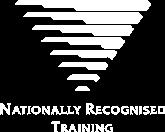
Sonal: Montessori Garden Underwood – Certificate III (Trainer Melissa-Ann)

Plus Kelly Goodsir, Adrian Pattra, Tania Porter, and more!









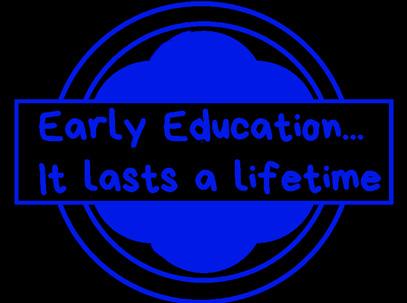
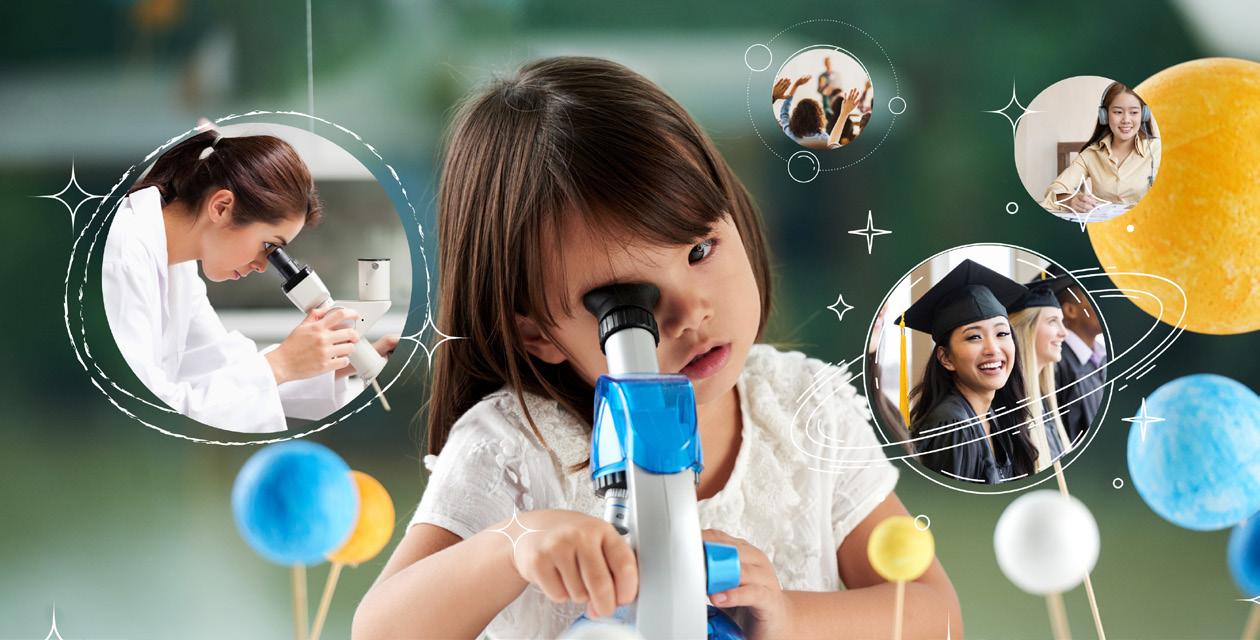
Join us for an incredible conference weekend which includes a standout lineup of speakers, dedicated Approved Provider Panel Discussion, Workshops and our famous Gala Dinner!



